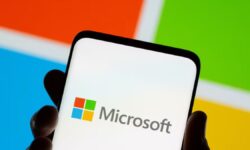AT&T’s fake 5G E is slower than Verizon’s and T-Mobile’s 4G
According to a firm that tests wireless speeds, the spurious 5G network isn’t outpacing its competitors.
AT&T’s wannabe 5G network, 5G E, might actually be slower than its competitors’ 4G LTE networks.
Opensignal, a company that looks into mobile network performance, on Friday published a study comparing the speeds of AT&T, Sprint, Verizon and T-Mobile. Though there wasn’t a raging gulf, 5G E clocked in slower than services from Verizon and T-Mobile that use the comparable enhanced 4G technologies.
“The 5G E speeds which AT&T users experience are very much typical 4G speeds and not the step-change improvement which 5G promises,” the report says.
AT&T said in response that Opensignal’s method was flawed.
“Speed test data purporting to show the ‘real-world experience of 5G Evolution’ without verifying the capable devices were tested in a 5G Evolution coverage area as shown by the indicator does not accurately represent the 5G Evolution user experience,” the company said in a statement.
AT&T drew criticism earlier in the year for rolling out to some phones a service it labeled a “5G E” network. Despite what the 5 and the G might lead you to think, the network isn’t, in fact, actually 5G. Critics, as well as rivals Verizon and T-Mobile, argued the network was more of a 4G LTE upgrade than anything else. Sprint sued AT&T, alleging it was attempting to mislead consumers.
Take five
In a January blog post, Verizon Chief Technology Officer Kyle Malady called for the industry to be more accurate in how it labels the services being offered.
“We won’t take an old phone and just change the software to turn the 4 in the status bar into a 5,” Malady said.
But that same month at CES 2019, AT&T CEO John Donovan said he was proud of the change.
“If I’ve occupied beachfront properties in my competitor’s head, that makes me smile,” he said.
Opensignal also compared AT&T’s 5G E to other AT&T offerings and found that the 5G E experience was faster. The firm said that given the jump in speed, having a different designation, like 4G Plus or Enhanced, would make sense.
But there’s a better way to let customers know when they’re getting the latest 4G tech, the firm said.
“If one service is offering a meaningful boost over another, it’s not unreasonable for it to be labeled differently, just not with a name that confuses customers,” Opensignal CEO Brenden Gill said in a statement.
Opensignal measured the speeds of more than 1 million devices across the US, and specifically tracked the advanced 4G technologies AT&T talked about (which the other carriers all use).
Verizon dismissed 5G E as a marketing term. T-Mobile didn’t respond to a request for comment.




